
A program for early-career researchers/faculty at UBC
Maximizing Impact is a program to engage early-career researchers/faculty in maximizing the impact of their academic endeavours – particularly during these challenging and uncertain times.
Led by Dr. Naznin Virji-Babul, Senior Advisor to the Provost, Women and Gender-Diverse Faculty, UBC Vancouver, and Associate Professor, Department of Physical Therapy, Faculty of Medicine, this program invites all faculty members, at the level of Assistant Professor, to take part in an eight-month online program. The program will provide networking opportunities, lunch-and-learn sessions with thoughtful and engaging speakers, and 1:1 leadership coaching.
The program will focus on the following components:
- Networking opportunities for faculty who are at the start of their academic careers.
- Events/workshops to help early-career faculty effectively lead change (See the list of general themes and speakers below)
- One-on-one leadership coaching in collaboration with Heather Turnbull (Program lead, Coaching Services, Organizational Development and Learning, Human Resources) and Yael Blum (Director, Organizational Development and Learning, Human Resources).
Events & Workshops
Month | Theme | Speakers | Date |
| September | Nerve: Lessons on leadership from two women who went first Recording available here. | Martha Piper | Sept. 29, 2021 |
| October | Starting and maintaining a vibrant research program/lab, motivating graduate students Recording available here. Password: Y04BJp!Q | Karen Cheung Sophia Frangou Michael Kobor Gail Murphy | Oct. 20, 2021 12:00-1:15 p.m. |
| November | Teaching post-COVID - successes, challenges, and learning from each other Recording available here. Password: b3zH?tT& | Christina Hendricks Jaclyn Stewart Janice Stewart | Nov. 16, 2021 12:00-1:15 p.m. |
| December | Inclusive Excellence | Ayesha S. Chaudhry | Dec. 8, 2021 12:00-1:15 p.m. |
| January | Managing family responsibilities (parenthood and aging parents) with demands of academia Recording available here (for UBC faculty and staff). If you are unable to view the OneDrive link, please email Dr. Virji-Babul for options. | Liisa Galea Eli Puterman Margaret Moss | Jan. 11, 2022 12:15-1:30 p.m. |
| February | Leadership Recording available here. Password: R6&j=laQ | Moura Qualye | Feb. 9, 2022 |
| March | Discussion on Tenure | Marion Pearson | Mar. 02, 2022 |
| April | End of year get-together | In-person | TBC |
Learn about our speakers
 Martha Piper served as the first woman president of the University of British Columbia and has been a director of the Bank of Montreal, Shoppers Drug Mart, and TransAlta Corporation. An Officer of the Order of Canada, she was born in Lorain, Ohio, and lives with her husband, William Piper, in Vancouver, British Columbia.
Martha Piper served as the first woman president of the University of British Columbia and has been a director of the Bank of Montreal, Shoppers Drug Mart, and TransAlta Corporation. An Officer of the Order of Canada, she was born in Lorain, Ohio, and lives with her husband, William Piper, in Vancouver, British Columbia.
Read more here
 Indira Samarasekera served as the first woman president of the University of Alberta and is a director of Magna International, TC Energy, and Stelco, and has served as a director of the Bank of Nova Scotia. An Officer of the Order of Canada, she was born in Colombo, Sri Lanka, and lives in Vancouver, British Columbia.
Indira Samarasekera served as the first woman president of the University of Alberta and is a director of Magna International, TC Energy, and Stelco, and has served as a director of the Bank of Nova Scotia. An Officer of the Order of Canada, she was born in Colombo, Sri Lanka, and lives in Vancouver, British Columbia.
Read more here
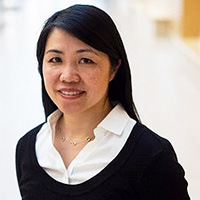 Dr. Karen C. Cheung, Professor; Director of the Graduate Program, and Associate Director of the School of Biomedical Engineering, (she/her/hers) received her BSc and PhD degrees in Bioengineering from the University of California, Berkeley, in 1998 and 2002, respectively. From 2002–2005, she was a postdoctoral researcher at the Ecole Polytechnique Fédérale de Lausanne, Switzerland. Her research interests include lab-on-a-chip systems for cell culture and characterization, inkjet printing for tissue engineering, and implantable neural interfaces.
Dr. Karen C. Cheung, Professor; Director of the Graduate Program, and Associate Director of the School of Biomedical Engineering, (she/her/hers) received her BSc and PhD degrees in Bioengineering from the University of California, Berkeley, in 1998 and 2002, respectively. From 2002–2005, she was a postdoctoral researcher at the Ecole Polytechnique Fédérale de Lausanne, Switzerland. Her research interests include lab-on-a-chip systems for cell culture and characterization, inkjet printing for tissue engineering, and implantable neural interfaces.
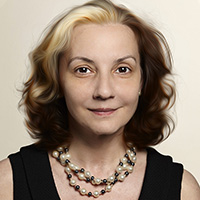 Dr. Sophia Frangou, MD, PhD, FRCPsych (she/her/hers) is a Professor of Psychiatry and President’s Excellent Chair in Research in Brain Health at the Djavad Mowafaghian Centre for Brain Health, where she leads the Translational Neuroimaging and Clinical Neuroscience Program in Mental Health.
Dr. Sophia Frangou, MD, PhD, FRCPsych (she/her/hers) is a Professor of Psychiatry and President’s Excellent Chair in Research in Brain Health at the Djavad Mowafaghian Centre for Brain Health, where she leads the Translational Neuroimaging and Clinical Neuroscience Program in Mental Health.
Dr. Frangou’s research focuses on uncovering pathophysiological processes underlying psychosis, with emphasis on schizophrenia and bipolar disorder using clinical, genetic, cognitive, and neuroimaging techniques. She has pioneered the use of brain imaging to identify brain plasticity associated with resilience in those at risk for mood and psychotic disorders and has been instrumental defining shared brain imaging changes across mental disorders, thus paving the way towards neuroscience-informed early intervention and prevention. Dr. Frangou has received numerous awards, most recently the prestigious Colvin Prize for Outstanding Achievement in Mood Disorders Research from the Brain and Behavior Research Foundation.
 Dr. Michael S. Kobor is a Professor in the Department of Medical Genetics at the University of British Columbia.Dr. Kobor has received many distinctions, including a Tier 1 Canada Research Chair in Social Epigenetics, the Sunny Hill BC Leadership Chair in Child Development, and an appointment as Fellow of the Canadian Institute for Advanced Research (CIFAR) Child and Brain Development Program. A champion for translational research, he serves as the Lead for the “Healthy Starts” Theme at BC Children’s Hospital. He also leads the UBC Social Exposome Research Cluster, an interdisciplinary effort spanning 8 Faculties that investigates the health effects of social and environmental factors and influences policies and interventions to reduce child health disparities. Dr. Kobor's own research program is focused on illuminating the mechanisms by which environmental exposures and life experiences can “get under the skin” to persistently affect health and behaviour across the lifespan.
Dr. Michael S. Kobor is a Professor in the Department of Medical Genetics at the University of British Columbia.Dr. Kobor has received many distinctions, including a Tier 1 Canada Research Chair in Social Epigenetics, the Sunny Hill BC Leadership Chair in Child Development, and an appointment as Fellow of the Canadian Institute for Advanced Research (CIFAR) Child and Brain Development Program. A champion for translational research, he serves as the Lead for the “Healthy Starts” Theme at BC Children’s Hospital. He also leads the UBC Social Exposome Research Cluster, an interdisciplinary effort spanning 8 Faculties that investigates the health effects of social and environmental factors and influences policies and interventions to reduce child health disparities. Dr. Kobor's own research program is focused on illuminating the mechanisms by which environmental exposures and life experiences can “get under the skin” to persistently affect health and behaviour across the lifespan.
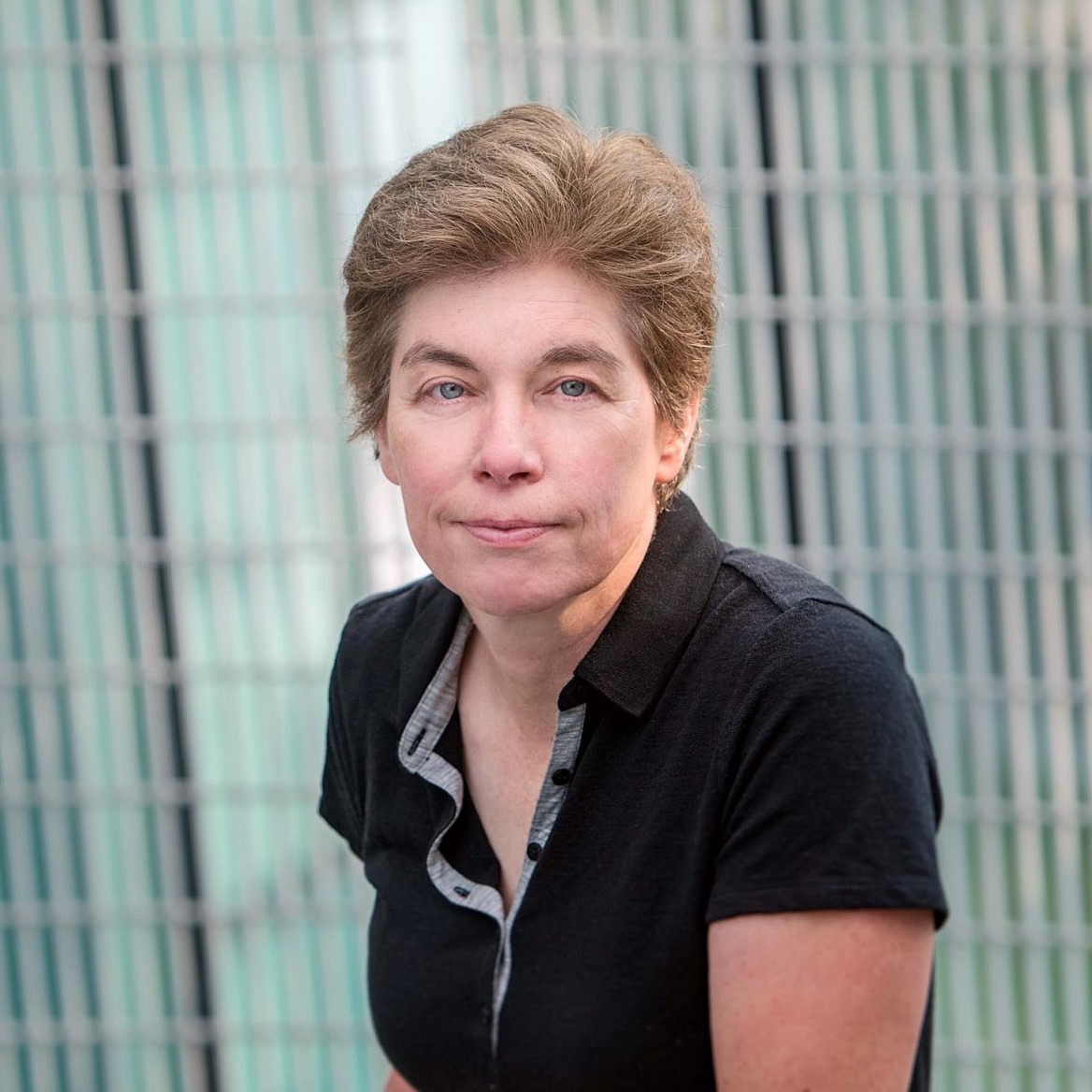 Gail C. Murphy is a Professor of Computer Science and Vice-President Research and Innovation at the University of British Columbia. She is a Fellow of the Royal Society of Canada and a Fellow of the Association for Computing Machinery (ACM), as well as co-founder of Tasktop Technologies Incorporated.
Gail C. Murphy is a Professor of Computer Science and Vice-President Research and Innovation at the University of British Columbia. She is a Fellow of the Royal Society of Canada and a Fellow of the Association for Computing Machinery (ACM), as well as co-founder of Tasktop Technologies Incorporated.
After completing her B.Sc. at the University of Alberta in 1987, she worked for five years as a software engineer in the Lower Mainland. She later pursued graduate studies in computer science at the University of Washington, earning first a M.Sc. (1994) and then a Ph.D. (1996) before joining UBC.
Dr. Murphy’s research focuses on improving the productivity of software developers and knowledge workers by providing the necessary tools to identify, manage and coordinate the information that matters most for their work. She also maintains an active research group with post-doctoral and graduate students.
Read more here
 Dr. Christina Hendricks (she/her/hers) is a Professor of Teaching in the Philosophy Department at the University of British Columbia, Vancouver. In Philosophy she teaches courses in Introduction to Philosophy, Ethics, Social and Political Philosophy, Continental Philosophy, and Feminist Theory. She has also taught in a first-year, team-taught, interdisciplinary program at UBC Vancouver called Arts One. She was the Chair of the Arts One program in 2010-2012 and 2015-2017.
Dr. Christina Hendricks (she/her/hers) is a Professor of Teaching in the Philosophy Department at the University of British Columbia, Vancouver. In Philosophy she teaches courses in Introduction to Philosophy, Ethics, Social and Political Philosophy, Continental Philosophy, and Feminist Theory. She has also taught in a first-year, team-taught, interdisciplinary program at UBC Vancouver called Arts One. She was the Chair of the Arts One program in 2010-2012 and 2015-2017.
Dr. Hendricks is the Academic Director of the Centre for Teaching, Learning and Technology at UBC Vancouver (since July 2018).
Previous to coming to UBC (in July of 2004), Dr. Hendricks taught for four years as an Assistant Professor of Philosophy at the University of Wisconsin-Rock County in Janesville, Wisconsin–part of the University of Wisconsin Colleges system.
Website: https://philosophy.ubc.ca/profile/christina-hendricks/
 Dr. Jaclyn (Jackie) Stewart (she/her/hers) is an Associate Professor of Teaching in the Department of Chemistry and the Deputy Academic Director of the CTLT. She specializes in teaching general chemistry, organic chemistry, and science communication. As an educational psychologist, her research interests span the areas of self-regulated learning and emotions, assessment, and inclusion. She is passionate about helping students learn to use research-tested study strategies and supporting faculty to adopt evidence–based instructional methods. Dr. Stewart’s work has been generously supported by the SoTL seed program, TLEF, the Equity and Inclusion Scholars Program, Skylight (development grants), and the Social Sciences and Humanities Research Council (SSHRC).
Dr. Jaclyn (Jackie) Stewart (she/her/hers) is an Associate Professor of Teaching in the Department of Chemistry and the Deputy Academic Director of the CTLT. She specializes in teaching general chemistry, organic chemistry, and science communication. As an educational psychologist, her research interests span the areas of self-regulated learning and emotions, assessment, and inclusion. She is passionate about helping students learn to use research-tested study strategies and supporting faculty to adopt evidence–based instructional methods. Dr. Stewart’s work has been generously supported by the SoTL seed program, TLEF, the Equity and Inclusion Scholars Program, Skylight (development grants), and the Social Sciences and Humanities Research Council (SSHRC).
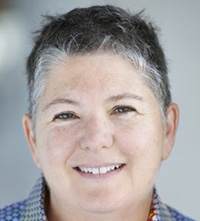 Dr. Janice Stewart (they/them/theirs) is the Associate Dean, Equity, Strategy and Innovation, Professor of Teaching Social Justice Institute (GRSJ), Faculty of Arts. In addition to their roles as Co-Chair of Critical Studies in Sexuality and Undergraduate Chair, Janice teaches in English Department and in the Institute for Gender, Race, Sexuality and Social Justice. Their major fields of research are British Modernism and Critical Theory, and they are currently working on a series of articles dealing with issues of sexuality, including Contagion theory, Censorship and Homosexual Panic in the trial of Radclyffe Hall; Locked in a Room of One’s Own; Querying the Quest for keys to Woolf’s Madness; Shadows in a Cracked Mirror The Spectre in The Well of Loneliness; and Totemic Subjects:Cultural Appropriations and Identificatory Practices in Emily Carr’s “Indian Stories.“
Dr. Janice Stewart (they/them/theirs) is the Associate Dean, Equity, Strategy and Innovation, Professor of Teaching Social Justice Institute (GRSJ), Faculty of Arts. In addition to their roles as Co-Chair of Critical Studies in Sexuality and Undergraduate Chair, Janice teaches in English Department and in the Institute for Gender, Race, Sexuality and Social Justice. Their major fields of research are British Modernism and Critical Theory, and they are currently working on a series of articles dealing with issues of sexuality, including Contagion theory, Censorship and Homosexual Panic in the trial of Radclyffe Hall; Locked in a Room of One’s Own; Querying the Quest for keys to Woolf’s Madness; Shadows in a Cracked Mirror The Spectre in The Well of Loneliness; and Totemic Subjects:Cultural Appropriations and Identificatory Practices in Emily Carr’s “Indian Stories.“
 Ayesha S. Chaudhry is the Canada Research Chair in Religion, Law and Social Justice and Associate Professor of Islamic studies and Gender studies at the University of British Columbia. She is a Member of the College of the Royal Society of Canada, and a Pierre Elliott Trudeau Fellow. She has held fellowships at the Peter Wall Institute for Advanced Study at UBC and the Radcliffe Institute for Advanced Study at Harvard University. She is the author of The Colour of God (Oneworld, 2021) and Domestic Violence and the Islamic Tradition: Ethics, Law, and the Muslim Discourse on Gender (Oxford University Press, 2014).
Ayesha S. Chaudhry is the Canada Research Chair in Religion, Law and Social Justice and Associate Professor of Islamic studies and Gender studies at the University of British Columbia. She is a Member of the College of the Royal Society of Canada, and a Pierre Elliott Trudeau Fellow. She has held fellowships at the Peter Wall Institute for Advanced Study at UBC and the Radcliffe Institute for Advanced Study at Harvard University. She is the author of The Colour of God (Oneworld, 2021) and Domestic Violence and the Islamic Tradition: Ethics, Law, and the Muslim Discourse on Gender (Oxford University Press, 2014).
Website: https://grsj.arts.ubc.ca/profile/ayesha-s-chaudhry/
 Chonnettia Jones is Vice President, Michael Smith Health Research BC, a new provincial organization formed from the consolidation of the BC Academic Health Science Network (BC AHSN) and Michael Smith Foundation for Health Research (MSFHR). Bringing more than two decades of experience in science and health research, strategy and policy in the US, UK/Europe and Canada, Chonnettia directs the organization’s research strategy, funding programs and strategic partnerships to maximize British Columbia’s investments in health research.
Chonnettia Jones is Vice President, Michael Smith Health Research BC, a new provincial organization formed from the consolidation of the BC Academic Health Science Network (BC AHSN) and Michael Smith Foundation for Health Research (MSFHR). Bringing more than two decades of experience in science and health research, strategy and policy in the US, UK/Europe and Canada, Chonnettia directs the organization’s research strategy, funding programs and strategic partnerships to maximize British Columbia’s investments in health research.
Chonnettia serves on a number of international advisory boards on scholarly publishing, open research, responsible research assessment and anti-racism in research. Chonnettia also speaks internationally on issues central to research including equity, diversity and inclusion, and has maintained a long-standing commitment to the mentorship of emerging leaders.
Chonnettia holds a Ph.D. in developmental biology from Emory University with interests in the molecular and cellular mechanisms regulating neural development.
 Dr. Wright is the Senior Advisor to the President on Anti-Racism and Inclusive Excellence and a Professor in the Department of Educational Studies in the Faculty of Education. He is also Director of the Centre for Culture, Identity and Education.
Dr. Wright is the Senior Advisor to the President on Anti-Racism and Inclusive Excellence and a Professor in the Department of Educational Studies in the Faculty of Education. He is also Director of the Centre for Culture, Identity and Education.
His work focuses on continental and diasporic African cultural studies, critical multiculturalism, anti-racist education, qualitative research, and cultural studies of education. Dr. Wright’s current research examines postmulticulturalism, youth identity, and belonging in the Canadian context.
Website: https://edst.educ.ubc.ca/facultystaff/handel-wright/#tab_tabs-1510-1
 Dr. Liisa Galea (she/her/hers) is a Professor in the Department of Psychology and a member of the Centre for Brain Health at the University of British Columbia (UBC). She is also Director of the Graduate Program in Neuroscience, Lead of the Women’s Health Research Cluster and a Scientific Advisor for the Women’s Health Research Institute. Her research investigates how sex hormones influence brain health and disease in both females and males. The main goal of her research is to improve brain health for women and men by examining the influence of sex and sex hormones on normal and diseased brain states such as depression and Alzheimer’s disease.
Dr. Liisa Galea (she/her/hers) is a Professor in the Department of Psychology and a member of the Centre for Brain Health at the University of British Columbia (UBC). She is also Director of the Graduate Program in Neuroscience, Lead of the Women’s Health Research Cluster and a Scientific Advisor for the Women’s Health Research Institute. Her research investigates how sex hormones influence brain health and disease in both females and males. The main goal of her research is to improve brain health for women and men by examining the influence of sex and sex hormones on normal and diseased brain states such as depression and Alzheimer’s disease.
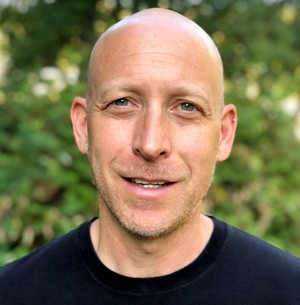 Dr. Eli Puterman is an associate professor at the University of British Columbia’s School of Kinesiology and the Canada Research Chair in Physical Activity and Health. His research, developed in collaboration with community, seeks to develop, evaluate, and disseminate physical activity programs and initiatives among hard to reach and equity-owed populations. Dr. Puterman’s work has been recognized with several young scholar awards, including from the Society of Behavioral Medicine (2014), the Academy of Behavioral Medicine Research (2015), and the International Society for Psychoneuroendocrinology (2018). Dr. Puterman is an Associate Editor for Health Psychology, serves on the Scientific Advisory Board for the John W. Brick Mental Health Foundation, and is an Executive Member of the Academy of Behavioral Medicine Research Executive Council.
Dr. Eli Puterman is an associate professor at the University of British Columbia’s School of Kinesiology and the Canada Research Chair in Physical Activity and Health. His research, developed in collaboration with community, seeks to develop, evaluate, and disseminate physical activity programs and initiatives among hard to reach and equity-owed populations. Dr. Puterman’s work has been recognized with several young scholar awards, including from the Society of Behavioral Medicine (2014), the Academy of Behavioral Medicine Research (2015), and the International Society for Psychoneuroendocrinology (2018). Dr. Puterman is an Associate Editor for Health Psychology, serves on the Scientific Advisory Board for the John W. Brick Mental Health Foundation, and is an Executive Member of the Academy of Behavioral Medicine Research Executive Council.
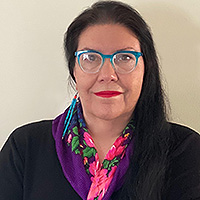 Dr. Margaret P. Moss, PhD, JD, RN, FAAN, is an enrolled member of the Mandan, Hidatsa, and Arikara Nation (Three Affiliated Tribes of North Dakota), and is also Dakhóta. Dr. Moss is the first and only American Indian to hold both nursing and juris doctorates. She has been a nurse for 32 years, a fellow in the American Academy of Nursing, and was recently elected to the Board of Directors. She was also appointed to the Board on Population Health and Public Health Practice (BPH) at the National Academies of Sciences, Engineering and Medicine (2021). Dr. Moss was, one of two Indigenous women named on the inaugural Forbes 50 over 50 Impact List 2021. She published the first-ever nursing text on American Indian health, winning two book-of-the-year awards (2016).
Dr. Margaret P. Moss, PhD, JD, RN, FAAN, is an enrolled member of the Mandan, Hidatsa, and Arikara Nation (Three Affiliated Tribes of North Dakota), and is also Dakhóta. Dr. Moss is the first and only American Indian to hold both nursing and juris doctorates. She has been a nurse for 32 years, a fellow in the American Academy of Nursing, and was recently elected to the Board of Directors. She was also appointed to the Board on Population Health and Public Health Practice (BPH) at the National Academies of Sciences, Engineering and Medicine (2021). Dr. Moss was, one of two Indigenous women named on the inaugural Forbes 50 over 50 Impact List 2021. She published the first-ever nursing text on American Indian health, winning two book-of-the-year awards (2016).
Dr. Moss has been a RWJF Health Policy Fellow staffing the Senate Special Committee on Aging; A Fulbright Research Chair at McGill University on Indigenous contexts; and currently, is Associate Vice President of Equity and Inclusion, Interim, at the University of British Columbia.
Prof. 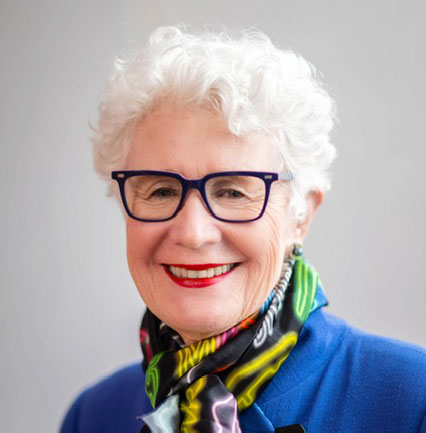 Moura Quayle is a Professor and founding Director of UBC’s School of Public Policy and Global Affairs (2017-2019), the former Director of the Liu Institute for Global Issues, and teaches in the Master of Public Policy and Global Affairs program. She was appointed Vice-Provost and Associate Vice-President, Academic Affairs at UBC on August 1, 2020.
Moura Quayle is a Professor and founding Director of UBC’s School of Public Policy and Global Affairs (2017-2019), the former Director of the Liu Institute for Global Issues, and teaches in the Master of Public Policy and Global Affairs program. She was appointed Vice-Provost and Associate Vice-President, Academic Affairs at UBC on August 1, 2020.
Moura’s interests lie in rethinking, refining, and rebuilding collaborative spaces at the intersections of academia, government, business and civil society. Her teaching and research focus on strategic design, designed leadership, and an emerging Policy Studio that helps students and organizations learn to use design processes and tools. She currently serves as Chair of Genome Canada. Her book, Designed Leadership, was published by Columbia University Press in July 2017.
Read more here
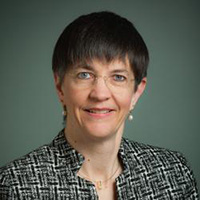
In 1998/99, Dr. Pearson was part of the first cohort to undertake the UBC Certificate on Teaching in Higher Education, now the Scholarship of Teaching and Learning (SoTL) Leadership program. She subsequently completed an MA in higher education in 2008 and a PhD in curriculum studies in 2014 at UBC. She remains involved with the SoTL Leadership program as a guest speaker, external peer reviewer, and member of the advisory board. Dr. Pearson is currently the director of the BSc(Pharm) program and director of the Office of Educational Support and Development in the Faculty of Pharmaceutical Sciences. One of her aims in the latter position is to support the SoTL efforts of her colleagues.
 Dr. Lara Boyd is the Canada Research Chair in Neurobiology of Motor Learning, a Michael Smith Foundation for Health Career Investigator, a Peter Wall Scholar, and a Professor in the Department of Physical Therapy, at the University of British Columbia. She is a Neuroscientist and Physical Therapist, and directs the Brain Behaviour Lab at the University of British Columbia. Her work is centered on answering the question of what limits, and what facilitates, neuroplasticity. Dr. Boyd is also the Health Research Advisor to the Vice President for Research at UBC and the University’s delegate to the Canadians Institutes for Health Research.
Dr. Lara Boyd is the Canada Research Chair in Neurobiology of Motor Learning, a Michael Smith Foundation for Health Career Investigator, a Peter Wall Scholar, and a Professor in the Department of Physical Therapy, at the University of British Columbia. She is a Neuroscientist and Physical Therapist, and directs the Brain Behaviour Lab at the University of British Columbia. Her work is centered on answering the question of what limits, and what facilitates, neuroplasticity. Dr. Boyd is also the Health Research Advisor to the Vice President for Research at UBC and the University’s delegate to the Canadians Institutes for Health Research.
Website: https://physicaltherapy.med.ubc.ca/person/lara-boyd/
 Dr. Christine Chen is an Associate Professor in the Department of Electrical and Computer Engineering, where she is affiliated with the Electric Power and Energy Systems group. She received her M.S. and Ph.D. degrees in Electrical Engineering from the University of Illinois at Urbana-Champaign in 2011 and 2014, respectively.
Dr. Christine Chen is an Associate Professor in the Department of Electrical and Computer Engineering, where she is affiliated with the Electric Power and Energy Systems group. She received her M.S. and Ph.D. degrees in Electrical Engineering from the University of Illinois at Urbana-Champaign in 2011 and 2014, respectively.
Website: https://people.ece.ubc.ca/chen/
We would also like to thank the women/gender-diverse faculty of the Scholarly Committee of the Emeritus College, who support the program as facilitators.
Thank you to the committee members advising on this project:
- Prof. Moura Quayle, Professor, Vice-Provost and Associate Vice-President, Academic Affairs
- Dee Dee Sung, ALDP Program Director and Leadership Coach
- Dr. Ian Scott, Associate Professor, ALDP Academic Co-Director
- Dr. Beth Haverkamp, Associate Professor, ALDP Academic Co-Director
- Dr. Linc Kesler, Associate Professor, Institute for Critical Indigenous Studies and English
- Dr. Sheryl Staub-French, Professor, Civil Engineering